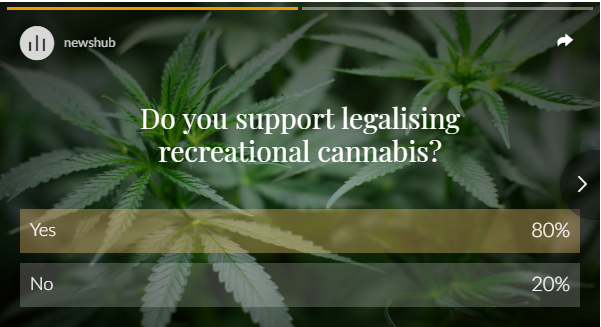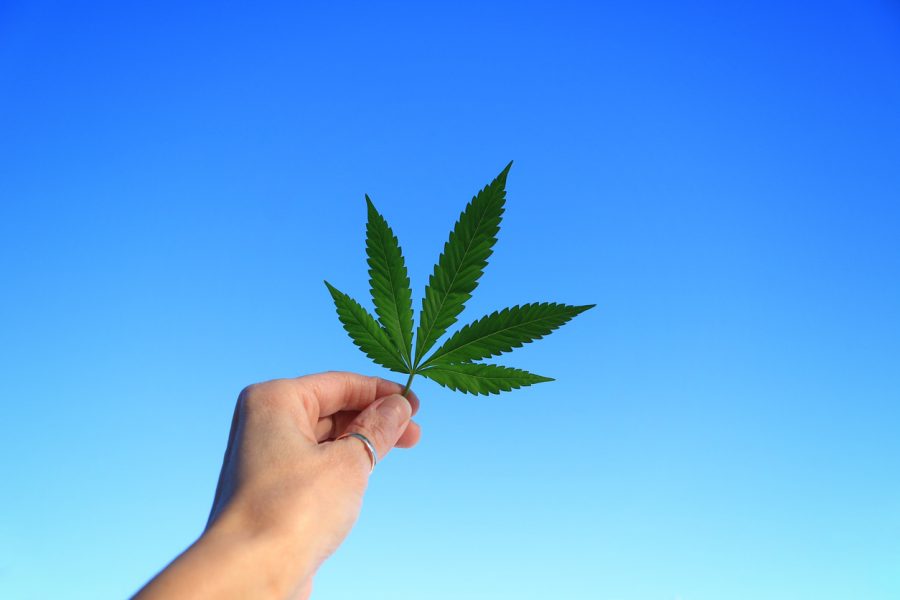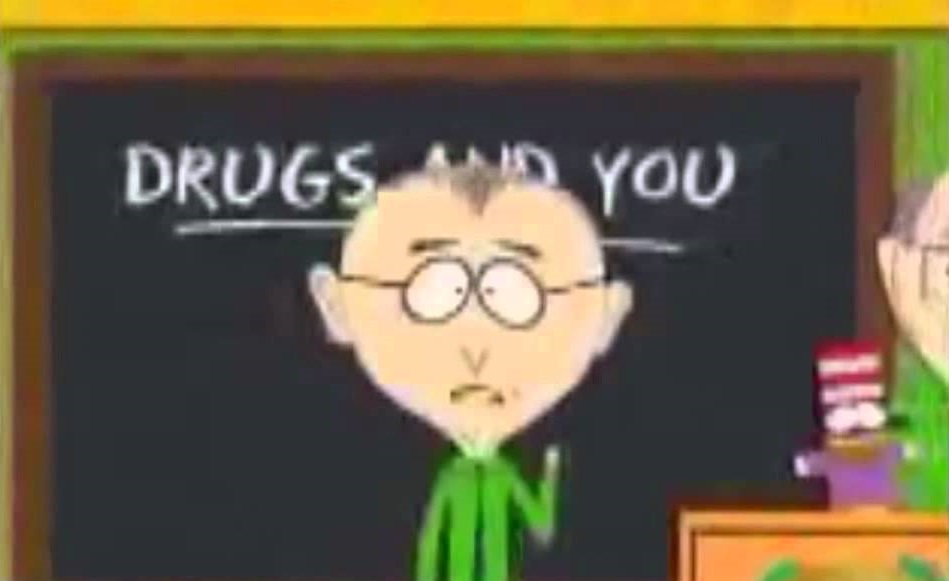My name is Dan McGlashan, and I am the author of Understanding New Zealand, a demographic study of the Kiwi people. In this article, I will explain the results of the recent cannabis law reform poll by Horizon Research, which broke down support for the upcoming cannabis referendum by party affiliation and age.
60% of New Zealand adults would vote to legalise the recreational use of cannabis on the upcoming referendum, according to the poll, with only 24% against. 16% had no opinion. Broken down by party support, 84% of Green voters would vote yes, with 63% of Labour, 56% of New Zealand First, 49% of ACT and 33% of National voters doing likewise.
The Green, Labour and National votes don’t need much explaining. The Greens have always been the strongest supporters of cannabis, apart from the Aotearoa Legalise Cannabis Party. Likewise, National has always opposed any effort to reform the laws. Many readers were surprised, however, to learn that support among New Zealand First voters is stronger than support among ACT voters.
In Understanding New Zealand, I showed which demographics were the strongest supporters of cannabis law reform, by correlating those demographics with support for the ALCP.
The average cannabis law reform supporter is – on average – young, poor, Maori, uneducated and with an especially high chance of suffering from a debilitating physical or mental illness. These demographics are all disenfranchised ones, which is why there is a strong association between being a cannabis user and having a difficult life. They are also the ones most heavily impacted by cannabis prohibition.
Some were surprised to see that support for cannabis law reform is very high among New Zealand First voters. 56% of New Zealand First voters would vote yes in the referendum, almost as many as Labour voters. New Zealand First voters are often stereotyped as old, bitter, out of touch racists, which makes it hard to explain their heavy support for cannabis law reform.
In reality, there is a moderately strong correlation between being a New Zealand First supporter and being Maori: one of 0.38. This also helps to explain why there was a moderately strong correlation of 0.40 between voting for New Zealand First in 2017 and voting ALCP in 2017. Many will also be surprised to read that there is no significant correlation between median age and voting for New Zealand First.
In other words, the New Zealand First demographic is much younger and browner than the lazy stereotype would have it. This can be established simply from observing the extremely high levels of support gained by New Zealand First in the Maori electorates. These young, brown and poor people are reliably fans of cannabis use, despite the general social conservatism of the New Zealand First movement.
Many others were surprised to see that only 49% of ACT supporters expected to vote yes in the referendum. ACT markets itself as the party of liberty from government overreach, and one might think that this would be reflected in support for cannabis law reform, but they have traditionally been very weak on the issue, perhaps even cowardly.
The simple truth is that ACT voters are not from the demographics that care about cannabis law reform. The correlation between voting ACT in 2017 and being Asian was 0.46, but the correlation between voting ACT in 2017 and being Maori was -0.51, which suggests that very few actual cannabis smokers are ACT supporters.
Moreover, ACT voters are wealthy: the correlation between voting ACT in 2017 and personal wealth was 0.61, making their supporters their wealthiest of all. ACT voters tend to come from two major groups: rich, old, white people with all the money, and young professional Asians who don’t want to pay taxes. Neither group has any major interest in recreational cannabis.
The cannabis referendum is very likely to end up with a yes vote, because most of the opponents of cannabis law reform are old and dying off. Conservative National voters are being replaced by less conservative ACT voters, and young people mostly support it anyway. It’s enough to compare Chloe Swarbrick with the decrepit Bob McCoskrie to guess that the repeal of cannabis prohibition is inevitable.
*
Understanding New Zealand, by Dan McGlashan and published by VJM Publishing, is the comprehensive guide to the demographics and voting patterns of the New Zealand people. It is available on TradeMe (for Kiwis) and on Amazon (for international readers).




